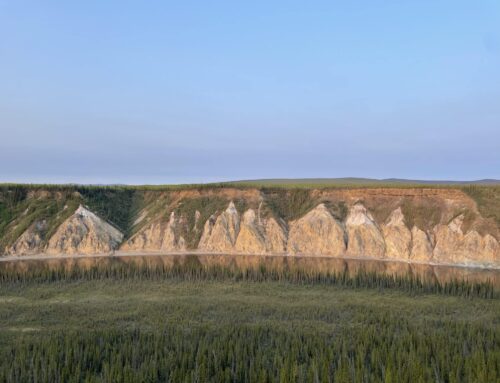For decades, the timber industry has quietly benefited from hundreds of millions of dollars in taxpayer subsidies, much of it to cover their road costs to log on federal land. Over the years, we’ve raised quite a bit of fuss about this and made some progress. But now a handful of timber companies stand to get a fast pass for more taxpayer handouts. If a federal rulemaking to exempt the Tongass National Forest in Alaska from the 2001 Roadless Rule moves forward, taxpayers are on the hook.
At its root, the current situation is pretty simple. We, federal taxpayers, own the land and the trees in our national forests, and the timber companies want to log it and sell it for profit. That all makes sense to us; it’s all above board, if you will. Wink. Wink.
But the nonsense begins in how the U.S. Forest Service sells our taxpayer-owned timber to logging companies to facilitate commercial logging in national forests. The Forest Service spends millions of dollars every year to plan, prepare, and administer timber sales. After the sale, the Forest Service (and taxpayers by extension) then spend millions of dollars more to construct the roads for logging companies to access the timber stands. In the end, it costs taxpayers MORE to “sell” the timber than we earn. Taxpayers actually end up underwater on these timber sales.
The Math Doesn’t Add Up
The warped economics of the Forest Service’s timber program are magnified in the Tongass National Forest, the largest in the country. In addition to spending millions to administer timber sales – around $15 million a year on average over the last 19 years – the Forest Service incurs huge costs building and maintaining roads in the Tongass, of which the “vast majority … were developed for timber harvest purposes.” If all roadbuilding costs are taken into account, the Forest Service has lost $25.2 million on average annually over the last 19 years providing for timber sales in the Tongass.
Bad as the problem with money-losing timber sales is, it stands to get much worse. This August, the Forest Service, at the request of the State of Alaska, announced they would revisit the 2001 Roadless Rule for the state. The Roadless Rule prohibits logging (with some exceptions) in approximately 58 million acres of “unroaded” national forests and approximately 9 million acres of roadless areas in the Tongass.
Reminder: roads are fully paid for by federal taxpayers. Selling timber in roadless areas would require the Forest Service to spend more constructing roads for harvesters in some of the most remote and inaccessible locations in the country. As a result, Forest Service losses from timber management would increase substantially.
And it’s not just direct costs to taxpayers. The Roadless Rule benefits many other interests including the outdoor recreation and tourism industry, hunting and commercial fishing, and it provides important habitat protections. These economic interests are growing while demand for timber is declining.
Not Too Late For USFS To Get It Right
This week was the deadline for the public to comment on the first stage in the rulemaking process. TCS submitted detailed comments highlighting our concerns, illustrating the potential costs to taxpayers, and raising important questions the Forest Service must answer before moving forward with an exemption for Alaska.
Fortunately, there’s still time for the Forest Service to get it right. The rulemaking process isn’t expected to be complete until 2020.
So we hope Secretary Perdue and the Forest Service can see the forest for the trees. The timber economy is changing and outdoor recreation is growing. Now more than ever, subsidizing timber sales and expensive roads that carry hefty long-term liabilities and maintenance costs is a wasteful endeavor. Let’s hope the Forest Service doesn’t go down that road.











Get Social